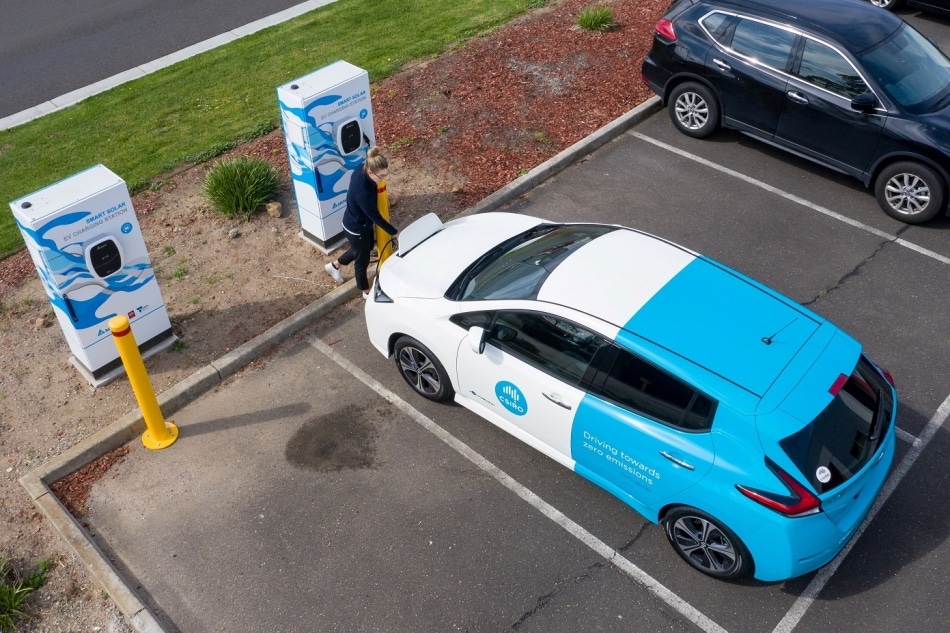Oct 14 2019
New technology from Australia’s national science agency, CSIRO, will link rooftop solar and batteries to support electric vehicle (EV) charging, even in the height of summer.
 An Electric Vehicle (EV) is charged at the solar charging station.
An Electric Vehicle (EV) is charged at the solar charging station.
With more EVs on Australian roads, demand for infrastructure is growing and placing stress on grid-powered charging stations.
New solar-powered EV charging stations will maximise use of renewable energy, with the potential to alleviate stress on the grid during peak periods.
The charging stations were developed with the Australian household in mind, overcoming challenges associated with EV charging, including managing temperatures on even the hottest days.
The technology also supports charging of multiple vehicles in areas with limited access to grid power – such as home garages and public carparks – where the charge rate would otherwise be limited.
Funded by the Victorian Government and in collaboration with Delta Electronics and Nissan Australia, CSIRO researchers developed and tested the system, incorporating a range of heat management strategies to ensure batteries are charged and discharged efficiently.
Lead researcher from CSIRO’s Centre for Hybrid Energy Systems Dr Christopher Munnings said up to 90 per cent of EV charging was likely to take place in the home.
“A normal household battery system is typically not powerful enough to charge a car on a hot day as it can overheat and slow down,” Dr Munnings said.
“We’ve devised a way to manage the temperature of the battery, minimising the amount of power required from the grid.
“In a multi-EV home, this system will automatically monitor each car, spreading the load between the battery, solar PV and the rest of the home.
“This means the cars charge as quickly as possible, using as much sun as possible, without the need to upgrade grid connection. This technology could accelerate the widespread rollout of EVs across the country.”
Three solar charging modules have been installed at Nissan Headquarters in Dandenong, each capable of charging four vehicles.
They will be tested and evaluated over 200 days, including the peak summer period.
Nissan Australia Managing Director Stephen Lester said: “Nissan is proud to partner with CSIRO and Delta Electronics to deliver this innovative trial and acknowledges the investment of the Victorian Government in supporting this project.”
“A study of this nature will enable greater EV adoption both here and around the world reducing impact on the grid,” Mr Lester said.
Following the test period, project partners will evaluate data collected throughout the trial, with the intention of confirming associated environmental and cost benefits.